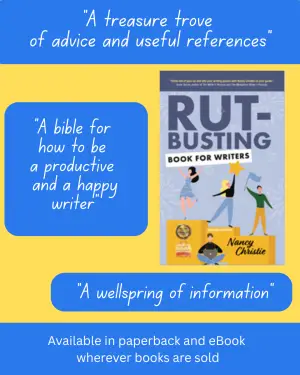In everyday language, finding the right word can sometimes feel like searching for a needle in a haystack. Writers who repeat words too often drag their writing down and make it tedious to read. The good news? Synonyms are here to save the day! A synonym is a word that has the same or nearly the same meaning as another word. They bring variety and energy to writing, making text more engaging for readers.
For instance, instead of saying “happy” all the time, you can jazz it up with alternatives like “cheerful,” “joyful,” or “elated.” This practice not only makes your writing more engaging but also allows you to convey subtle differences in meaning.
Table of Contents
Different Types of Synonyms
Not all synonyms are created equal. Let’s break them down into two main types: perfect synonyms and near synonyms.
Perfect Synonyms
Perfect synonyms are words that can replace each other in any context without altering the meaning. Here are a couple of examples:
- Begin / Start: You can say, “Let’s begin the meeting” or “Let’s start the meeting.”
- End / Finish: “We will end the project” and “We will finish the project” mean nearly the same thing.
These words can be swapped easily in various contexts, making them interchangeable.
Near Synonyms
Near synonyms, on the other hand, have similar meanings but may carry different nuances or connotations. Here are some examples:
- Talk / Speak: “Talk” is often more casual, while “speak” might carry a more formal tone. For example, the sentence “She loves to talk with her friends” feels light and easygoing. In contrast, “The conference invited her to speak” carries a different weight.
- Child / Kid: Both words describe a young person. Use “child” in formal situations. Use “kid” in informal or conversational contexts.
Understanding the nuances behind near synonyms adds depth to your writing, allowing for more precise expressions of your thoughts.
How to Identify Synonyms
Recognizing synonyms requires a basic understanding of language and context. Here are some practical tips to identify synonyms easily:
Use Thesauruses
A thesaurus is your best friend when searching for synonyms. Online tools like Thesaurus.com or Merriam-Webster can provide a wealth of options at your fingertips. Type in the word you’re interested in, and you’ll receive a list of alternatives. However, it’s crucial to verify the context in which you’re using the synonym to ensure it aligns with your intended meaning.
Contextual Clues
Synonyms often depend on the context. If you’re writing a formal essay, words like “purchase” might be better suited than “buy.” Conversely, “buy” works perfectly in everyday conversation. Paying attention to the tone and style of your writing will help you select more appropriate synonyms.
Word Associations
Sometimes, thinking of words that come to mind when you hear a particular word can help you identify synonyms. For example, if you think of “beautiful,” you might also think of “gorgeous” or “stunning.” Keep a mental list whenever you encounter new vocabulary—it’ll make finding synonyms a breeze later!
Examples of Synonyms in Everyday Use
Let’s look at some common words and their synonyms in sentences. This list of examples shows how choosing different words can improve your writing.
Common Descriptors
- Fast: Quick, speedy, rapid
- “The car is fast” vs. “The car is speedy.”
- Smart: Intelligent, clever, bright
- “She is smart” vs. “She is intelligent.”
Emotions
- Angry: Furious, irate, livid
- “He was angry when he found out” vs. “He was furious when he found out.”
- Sad: Unhappy, sorrowful, dejected
- “She felt sad after the news” vs. “She felt dejected after the news.”
Actions
- Help: Assist, aid, support
- “Can you help me with this?” vs. “Can you assist me with this?”
- Think: Consider, ponder, reflect
- “I need to think about it” vs. “I need to consider it.”
Practical Synonym Usage
Using synonyms effectively in writing not only improves readability but also retains the reader’s interest. Here’s how you can apply them in practical writing scenarios:
Creative Writing
Imagine you’re writing a story about a sunny day. Instead of using “sunny” repeatedly, mix it up with synonyms:
- “The day was bright.”
- “The skies were luminous.”
- “The cheerful sun radiated warmth.”
This technique stops repetition and keeps stories lively.
Academic Writing
In an essay discussing climate change, you don’t want to overuse the word “impact.” Instead, you could use:
- “The effect of climate change is profound.”
- “The influence of climate patterns is significant.”
- “Climate change has far-reaching consequences.”
Employing synonyms elevates the level of your writing, making your arguments more compelling.
Business Communication
In a business report, you might want to avoid repeating the word “increase”:
- “Sales figures showed a notable rise.”
- “We saw a growth in demand.”
- “There was an upward trend in revenue.”
This variation can enhance the professionalism and readability of reports.
Tools to Find Synonyms
Sometimes you might still struggle, even with your trusty thesaurus. Here are some helpful digital tools that make synonym searching more efficient:
Online Synonym Generators
Websites like Power Thesaurus or OneLook provide interactive platforms where you can type a word and see user-generated synonyms and related terms. This variety of choices beats the traditional thesaurus every time.
Vocabulary Apps
Apps like Vocabulary.com or WordHippo offer not just synonyms but relevant context and example sentences. They can also help improve your vocabulary through quizzes and exercises.
Grammar and Style Checkers
Some writing tools, such as Grammarly, can suggest synonyms while checking your writing for grammar and style issues, making the process smoother.
Avoiding Common Pitfalls with Synonyms
While using synonyms can enrich your writing, there are some pitfalls to avoid:
Overuse of Synonyms
Using too many synonyms can confuse a reader. If you replace simple words with more complex synonyms everywhere, the text may become convoluted. Maintain clarity. Use synonyms selectively and purposefully.
Misunderstanding Nuance
Not all synonyms fit all situations. For example, “slim” and “skinny” both describe a lack of weight but have different connotations. “Slim” can be more positive, while “skinny” may have negative implications. Selecting the incorrect synonym can alter the intended message entirely.
Inconsistency
Inconsistent use of synonyms can break the flow and coherence of writing. If you’re describing a character’s emotions, swapping between “happy” and its synonyms too frequently can confuse the reader. Choose a primary word and use its synonyms sparingly to ensure clarity.
Additional Information
Synonyms are more than just words with similar meanings; they hold fascinating facts that can enhance your writing.
- Subtle Nuances: Many synonyms carry slight differences in connotation or usage. For example, “slim” and “skinny” both describe a lack of fat, but “slim” often has a positive or stylish vibe. Meanwhile, “skinny” can suggest unhealthiness.
- Context Is Key: The context in which you use a synonym can completely change its impact. “Happy” works fine for daily chat, but in writing, words like “elated” or “ecstatic” capture stronger emotion.
- Hyponyms and Hypernyms: Some synonyms fall into categories. For instance, “rose,” “daisy,” and “tulip” are all specific types of “flower,” making “flower” a hypernym. Understanding these relationships helps add depth to your vocabulary.
- Regional Variations: Certain synonyms differ by region. “Biscuit” in the U.S. refers to a flaky bread, while in the U.K., it’s a cookie. Knowing these variations can be crucial if your audience is global.
- Register Variations: Synonyms can vary in formality. For example, “ask” feels casual, but “inquire” sounds more formal. Choosing the right word for your audience can enhance clarity and effectiveness.
- Etymology Intrigue: Some synonyms originate from different languages, which can add flavor to your writing. For instance, “teacher” (Old English) and “educator” (Latin) offer different historical perspectives on the same role.
- Idiomatic Usage: Some synonyms only fit well in idiomatic expressions. “Take” can be replaced with “grab” in “take a seat,” but “grab a seat” has a more casual tone.
- Thesaurus Traps: Using a thesaurus can lead you astray. Many synonyms are not interchangeable. For example, “deceased” sounds formal, while “dead” feels casual. Swapping them without care can make writing confusing or awkward.
- Cultural Context: Some words may be sensitive in certain cultures, making their synonyms less likely to be understood or accepted. Being mindful of cultural differences is vital for effective communication.
- Sound and Rhythm: Sometimes, the choice of a synonym can impact the sound of your writing. The monosyllabic “run” has more punch than the three-syllable “jog.” Word sounds stack up to create a mood, changing how prose feels to the reader.
Frequently Asked Questions (FAQs) Related to Synonyms Examples
Q. What is a synonym?
A. A synonym is a word that has the same or nearly the same meaning as another word. For example, “happy” and “joyful” are synonyms.
Q. Can you give an example of synonyms for the word “big”?
A. Sure! Synonyms for “big” include “large,” “huge,” and “enormous.”
Q. What are synonyms for the word “quick”?
A. Synonyms for “quick” are “fast,” “rapid,” and “swift.”
Q. Is “smart” synonymous with “intelligent”?
A. Yes, “smart” and “intelligent” are synonyms, meaning they convey a similar idea of being knowledgeable or clever.
Q. What is a synonym for “beautiful”?
A. A synonym for “beautiful” is “gorgeous.” Other examples include “pretty” and “lovely.”
Q. Can you provide synonyms for the word “happy”?
A. Certainly! Synonyms for “happy” include “cheerful,” “content,” and “elated.”
Q. What are some synonyms for “difficult”?
A. Synonyms for “difficult” include “hard,” “challenging,” and “tough.”
Q. Is “young” synonymous with “juvenile”?
A. Yes, “young” and “juvenile” can be used as synonyms, particularly when referring to age.
Q. What synonyms can I use for “angry”?
A. Synonyms for “angry” include “furious,” “irritated,” and “mad.”
Q. Are “funny” and “hilarious” synonyms?
A. Yes, these words share a similar meaning. Both describe something that makes people laugh. “Hilarious” suggests a stronger or more intense form of humor than “funny.”
Conclusion
Synonyms are strong tools that can enhance your writing. By using different words with similar meanings, you can add variety, improve clarity, and engage your readers more effectively. Remember to choose synonyms that fit the context and tone of your writing. With practice, you’ll find that expanding your vocabulary not only boosts your confidence but also makes your work more interesting. Keep exploring and utilizing synonyms to elevate your writing to the next level!







